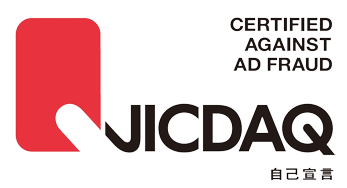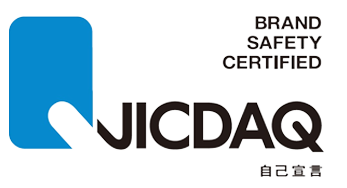We sat with Naoya Fujiwara, the head of the company's digital communications office, to discuss digital marketing and the benefits of putting measures in place to handle ad fraud.
Q. What is the digital marketing head office?
The digital marketing head office is the new special office set up to promote digital transformation or DX.
Our cross-sectional department consolidates and manages digital operations across other departments, including marketing, e-commerce, branding, and customer relationship.
- 10,577 instances of invalid accesses detected
- Estimated $7,000 in damages
Issues we were encountering prior to using Spider AF:
- Presence of billing bots.
- Ad fraud after our digital transformation.
Day 13 of Spider AF’s demo implementation showed:
- 10,577 results of invalid accesses.
- $7,000 in estimated damages.
- Reduction in invalid accesses.
- Wrong placement reduction from 2.07% to 0.72%
- Brand protection against negative public reviews.
- CPA improvement.
We were finally able to visualize and highlight the brand damage brought about by our ad campaigns that we couldn't see with our own eyes.
Q. Could you tell why you believe it is essential to set measures against ad fraud?
After our digital transformation from traditional marketing, we discovered the increasing importance of TV commercials and digital platforms. The pandemic gave us a push to start optimizing all our digital operations. That, including the metrics we used to pay attention to, has also changed. It was when we started keeping tabs on the numbers that ad fraud became evident.
Q. How did you decide to use Spider AF? What informed your decision?
There have always been discussions about 'billing bots' that affect web ads that are popping up all over the entire digital marketplace. Knowing this gave me the impression that I needed to know how much damage the bots were causing our brand. It's challenging to identify brand damage compared to identifying advertising costs. So what informed my decision to go for Spider AF was because I could visualize the damage and its extent.
Q. Which other companies did you look into before going with Spider AF?
We checked other companies as well, but we considered two important factors:
#1: Zero worries about operationality
#2: A standby support system
There are still some things that must be done manually. We wanted to avoid more operational expenses, so we considered something that could automate our digital operations. I also had the chance to meet with Satoko Ohtsuki, Spider Labs’ CEO, and it gave me a lot of confidence in their support system.
Q. What was your impression when you saw the demo results for the first time?
I had my doubts, but the demo results made it clear that we were experiencing ad fraud. We had 10,000 instances of invalid access with estimated damage worth $7,000. It wasn’t only the monetary loss, but the brand damage we suffered was also another aspect we couldn't quantify.
Q. Did it ever cross your mind not to use the tool?
When we saw the performance of the demo, we jumped into using Spider AF immediately. Seeing the results we were getting, we never thought of not using the tool.
Q. Is there any significant change since you started using Spider AF? Has it solved any problems you had?
We saw that we could prevent wasteful advertising costs. With Spider AF, we were able to visualize and monitor our advertising campaigns and quickly understood what our KPI/costs were. Because of all these, I believed the numbers we saw were correct. We enjoyed a strong sense of brand security because our ads were no longer placed on sites that could potentially damage us.
Q. How was your cost-effectiveness?
We could see cost-effectiveness very clearly since our digital budget is included in the company's total budget. It's surprising, but digital operations take a big chunk of our budget, so we were relieved to see that we've been able to reduce wasteful costs. Whether it's a cent or a dollar, every single penny counts as they all add up quickly. Web advertising is like spreading water out into a desert, so avoiding unnecessary and wasteful costs is a top priority.
Q. Has your perception of ad fraud measures changed since you started using Spider AF?
Yes, it certainly has. Web advertising has become a priority for us and I believe it's essential to look at the bigger picture. Staying updated with ad fraud countermeasures is very important. I've heard cases where advertisers are discouraged from setting measures against ad fraud when they see the number of cases has dropped in a few months. But that only means things will return to the way they are.
The digital marketing world is a cat and mouse game and it would help if you constantly improve the measures you take against ad fraud. And as you do that, always remember to keep pushing yourself as it is essential in digital marketing.
Q. What are your thoughts on whether or not advertisers should be leading the race to tackle ad fraud?
I believe advertisers have a duty to tackle the issue. Since advertising is no longer how it used to be, advertisers now need to worry about creating content that clicks to the audience. Agencies can only break down the roles for you, but advertising is always part of an advertiser's duty. I can't overemphasize the need for advertisers to understand their role in advertising and take steps to tackle ad fraud.
Q. Lastly, what kind of outlook do you have for your business and services, and how will you use Spider AF?
Because of Spider AF, we were able to visualize the data needed in order to identify what was fraudulent or not. Moving forward, I would like to take advantage of Spider AF’s dashboard to analyze the data needed to be able to contribute to our ad campaign initiatives.
Thank you for your time today!









.png)
%20(1).png)
.png)





